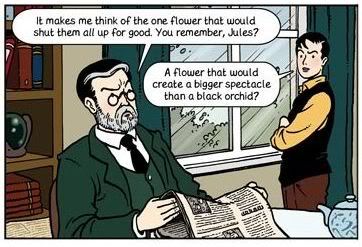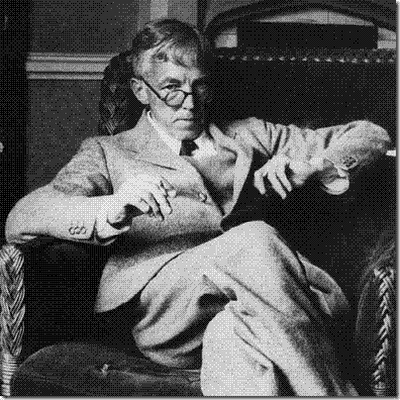Another day on the PCH
Same old same old, south of Carmel. Gets tedious after a while. More of the same further down the road.

Fools swear they wise, wise men know they foolish
Same old same old, south of Carmel. Gets tedious after a while. More of the same further down the road.
The Party will require voters to sign a loyalty oath in order to participate in the election.
Now the harsh, cold truth emerges about North Korea's late, unlamented Kim Jong-Il. It turns out that he not only allowed golf, the revisionist bastard (Mao banned it), but then lied about his score. So, not just a monstrous tyrant, but also a cad. Good riddance.
I must say, that was a brilliant fantasy season. Also, for me, educational.
9 year-old guest blogger reports:

"Shakespeare and Christmas", by Fr*nk N*rris, in Max Beerbohm's wondrous A Christmas Garland (link) -
Some say that ever 'gainst that season comes
Wherein our Saviour's birth is celebrated,
The bird of dawning singeth all night long:
And then, they say, no spirit dare stir abroad;
The nights are wholesome; then no planets strike,
No fairy takes, nor witch hath power to charm,
So hallowed and so gracious is the time.
[Mr. Fr*nk H*rr*s is very much a man of genius, and I should be sorry if this adumbration of his manner made any one suppose that I do not rate his writings about Shakespeare higher than those of all "the Professors" together.—M.B.]
Fascinating and sobering, from Bureau of Labor Statistics on the Profession of Art. I especially love the definitions.
Artists create art to communicate ideas, thoughts, or feelings. They use a variety of methods—painting, sculpting, or illustration—and an assortment of materials, including oils, watercolors, acrylics, pastels, pencils, pen and ink, plaster, clay, and computers. Artists' works may be realistic, stylized, or abstract and may depict objects, people, nature, or events.
Fine artists typically display their work in museums, commercial art galleries, corporate collections, and private homes. Some of their artwork may be commissioned (done on request from clients), but most is sold by the artist or through private art galleries or dealers. The gallery and the artist predetermine how much each will earn from the sale. Only the most successful fine artists are able to support themselves solely through the sale of their works. Most fine artists have at least one other job to support their art careers. Some work in museums or art galleries as fine-arts directors or as curators, planning and setting up art exhibits. A few artists work as art critics for newspapers or magazines or as consultants to foundations or institutional collectors. Other artists teach art classes or conduct workshops in schools or in their own studios. Some artists also hold full-time or part-time jobs unrelated to art and pursue fine art as a hobby or second career.
Usually, fine artists specialize in one or two art forms, such as painting, illustrating, sketching, sculpting, printmaking, and restoring. Painters, illustrators, cartoonists, and sketch artists work with two-dimensional art forms, using shading, perspective, and color to produce realistic scenes or abstractions.
The Siege of Bastogne was a famous battle in World War II that took place in and around the Belgian town of Bastogne over Xmas 1944. Outnumbered, surrounded, and in desperate need of supplies, American forces (represented by these bunnies) managed to hold off the Germans until relieved by elements of General Patton's Third Army. Considered as one of the key engagements of the larger "Battle Of The Bulge", The Siege Of Bastogne has been portrayed many times in the movies and on television, and is one of the most famous battles in WWII history.
The story he spun to the Nazis, in a series of letters and reports, was that the Persian Emperor Cyrus had freed Jewish exiles in Babylon in 538 BC and they had returned to their homes.
Deputy Prime Minister Nick Clegg, who once worked as an intern for Hitchens, said: "Christopher Hitchens was everything a great essayist should be: infuriating, brilliant, highly provocative and yet intensely serious.
What has been Googled cannot be un-Googled.
Corporations struggle to decide where to put all that corporate cash.
I was out of the loop - I hadn't heard about this until now, and bang went two hours. It's awesome so far.
Even when your Derp is strong, it can turn on you, and force you to face what you most fear. (link)
Brussels isn't too cheerful - I can count the smiling faces I saw yesterday on one hand. Our group was one building away from a major summit-related event, but there was no indication of how things were going. And none after: no major news last night, no headlines today.
Remember how Wolfgang Münchau said that the Euro zone had to get it right at this summit or it would collapse? Well, the Euro zone has most emphatically not got it right. Take any of the list of prescriptions of the minimum necessary right now — from Münchau, from Larry Summers [link], from Mohamed El-Erian — and the one thing that jumps out at you, especially in light of the most recent news, is that if you look at anybody’s list, there’s an enormous number of items which has zero chance of actually happening.I now realize I'm attending the funeral of the dream of a single European currency. As, one-by-one, nations have been peeled away, the political "center" of Europe has become smaller and smaller. At the start of this year one might have spoken of a "core" of five or so countries, last week this core was down to just Germany and France.
The head of bankrupt US brokerage firm MF Global, Jon Corzine, has told a congressional committee that he has no idea where its clients' money has gone.
AUDITOR: OK, so you're saying you made $600 million in profit.
EXECUTIVE: Correct.
AUDITOR: Can I see it?
EXECUTIVE: Sure! It's right here in my desk! UH-oh! The drawer is stuck!
AUDITOR: Wow! Just like last year!
Python and medieval historian Terry Jones calls out the drumbreat for war, in particular with Iran.
Dr. Kapital posts this from the afternoon Thalys from Paris to Brussels (no, really!):
G.H. Hardy, A Mathemetician's Apology
[F]ormulas (1) to (4) are harder than they look... (5) and (6) I could do, but with difficulty... (7) I have done myself... (8) is a formula by Laplace which was proved by Jacobi... (9) is in a paper by Rogers in 1907... (10) and (11) are not true... (12) to (15) defeated me completely ......and, after consulting with Littlewood, concluded that he was looking not at a crank letter, but the work of "a mathematician of the highest quality, a man of altogether exceptional originality and power."

‘I do what I do because it is the one and only thing that I can do at all well. I am a lawyer, or a stockbroker, or a professional cricketer, because I have some real talent for that particular job. I am a lawyer because I have a fluent tongue, and am interested in legal subtleties; I am a stockbroker because my judgment of the markets is quick and sound; I am a professional cricketer because I can bat unusually well. I agree that it might be better to be a poet or a mathematician, but unfortunately I have no talent for such pursuits.’
I am not suggesting that this is a defence which can be made by most people, since most people can do nothing at all well. But it is impregnable when it can be made without absurdity, as it can by a substantial minority: perhaps five or even ten percent of men can do something rather well.
There are masses of chessplayers in every civilized country – in Russia, almost the whole educated population; and every chessplayer can recognize and appreciate a “beautiful” game or problem. Yet a chess problem is simply an exercise in pure mathematics (a game not entirely, since psychology also plays a part), and everyone who calls a problem “beautiful” is applauding mathematical beauty, even if it is a beauty of a comparatively lowly kind. Chess problems are the hymn-tunes of mathematics.Chess, in other words, is math for those unable to appreciate the real stuff. Hardy twists the knife:
I feel some sympathy even with conjurors and ventriloquists and when Alekhine and Bradman set out to beat records, I am quite bitterly disappointed if they fail.
Alekhine is a player I've never really understood; yet, strangely, if you've seen one Alekhine game you've seen them all. He always wanted a superior center; he maneuvered his pieces toward the King side, and around the twenty-fifth move, began to mate his opponent... His play was fantastically complicated, more so than any player before or since.

"Look at my game! Look at my game! I've played a brilliancy!" screamed Michael Mills, a class "C" player.And indeed he had. Silman's account of this astonishing event first appeared in Chess Life in 1974, and an updated version of the article appears here.
Labels: chess
How could this happen? I was so careful. I picked the wrong play, the wrong director, the wrong cast. Where did I go right?

“I did my job, that was all,” lead defusing expert Horst Lenz told local daily Rhein Zeitung...after defusing a 1.8 ton WW2 bomb.
The estimable Peter Egan in this month's Road and Track:
[T]hey wanted to present me with an award for being The Oldest Living Person to Have Built a 948 Sprite Engine on His Kitchen Table and Carried it Down a Flight of Stairs Right Before Going to the Hospital with Intense Back Pain That Would Persist Forever.
Actually, that wasn't the exact wording. It was a "Sharing the Passion" award, but the idea was about the same. If we live long enough and suffer greatly from our own stupidity, someone finally notices.
Yada’s international license was apparently not sufficient to satisfy the letter of the law, which required him to carry either an Alabama license or one issued by Japan. The charges were dismissed only when his attorney faxed a copy of his Japanese driver’s license to the judge.